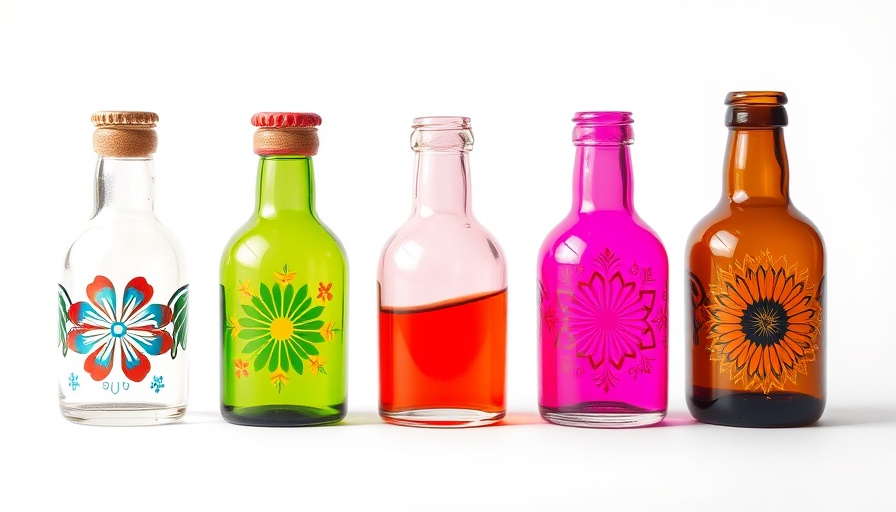
Understanding 'Gas Station Heroin': A Growing Concern
The term "gas station heroin" may evoke images of illicit drug sales, but for many shoppers, it’s less about the grim reality of addiction and more about seemingly enticing products found on store shelves. These bright-colored bottles often marketed as energy shots or cognitive enhancers contain tianeptine, a substance associated with serious health risks. While tianeptine is legal to sell as a supplement in many places, its chaotic presence in convenience stores raises urgent health alarms.
The Rising Tide of Tianeptine
As health officials warn about the dangers of such products, it’s important to note that tianeptine was designed as an antidepressant outside of the United States. However, it has not received FDA approval for any medical use here. Despite its status, it has made its way into the hands of consumers as a grey-area product—often advertised as a remedy for issues like anxiety and pain without sufficient evidence.
Health Risks: The Real Dangers Behind the Product
The phenomenon of rising poison center calls linked to tianeptine over the past decade cannot be overlooked. Reports of harmful side effects such as rapid heartbeat, seizures, and disorientation during consumption have surged, forcing professionals like Dr. Diane Calello to raise awareness. Many individuals, perhaps believing they are turning to a natural health solution, may instead find themselves in peril.
The Ambiguity of Legal Standings
The legality surrounding the sales of tianeptine remains nebulous. Although the FDA has issued warnings against its inclusion in dietary supplements and foods, the lack of stringent regulations allows it to slip through the cracks. As consumers end up purchasing these potentially hazardous products at inconspicuous points such as gas stations or shops, it raises questions about consumer safety and governmental oversight.
Community Health Implications
For communities, particularly in urban locations such as San Antonio, understanding the implications of tianeptine’s availability is vital. Health and wellness centers are beginning to engage in discussions about consumer education surrounding these products. Ensuring that individuals are informed about the risks and supported in choosing healthier alternatives is integral.
Addressing the Misinformation
Several marketing claims surrounding tianeptine products suggest benefits such as improved mood or reduced cravings for opiates. However, such assertions often lack scientific backing. As consumers, it’s crucial to develop a discerning eye and an appreciation for confirmed health and wellness practices, avoiding products marketed under misleading pretenses.
Action Steps for Healthier Choices
For those seeking energy boosters or cognitive aids, opting for well-studied options such as vitamins, herbal supplements, or nutritional products is advisable. Consulting with healthcare professionals can provide guidance on the safest paths toward health and emotional well-being. Simple lifestyle changes can significantly improve health metrics, often leading to better energy levels and mood stabilization.
Conclusion: Advocating for Wellness
The conversation surrounding gas station heroin underscores the need for heightened awareness and vigilance regarding unregulated products on the market. As consumers, we must prioritize health by making informed decisions about what we put into our bodies. By turning to verified sources and winning back control over our health, we can truly live optimally and embrace a holistic approach to well-being. If you're navigating the health landscape in your community, understand what wellness products work for you. Seek out reputable resources today!
 Add Element
Add Element  Add Row
Add Row 



Write A Comment